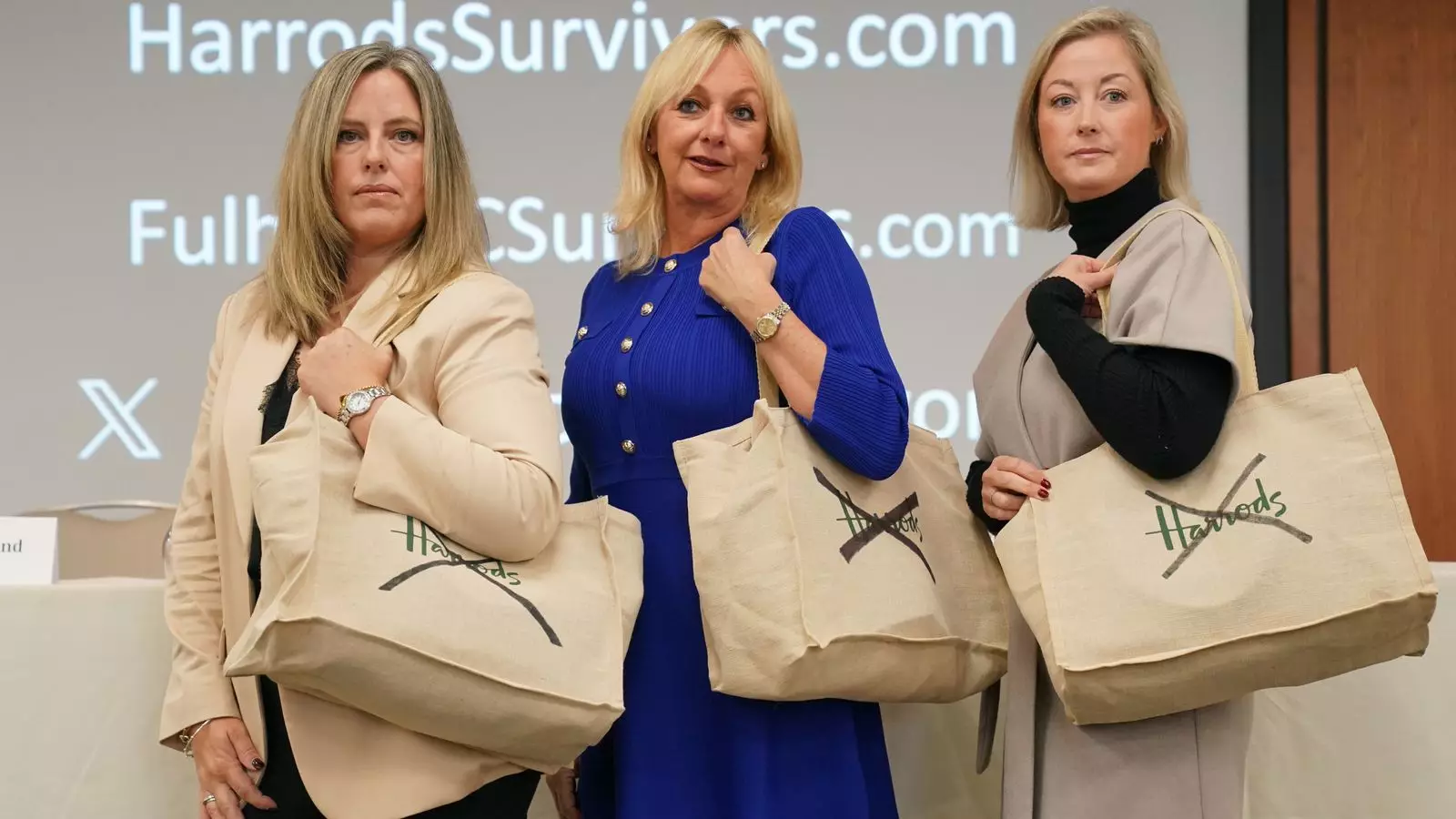Recent developments surrounding Mohamed al Fayed, the high-profile businessman and former owner of Harrods and Fulham FC, have triggered a significant public outcry. The Justice for Harrods Survivors group has reported an astonishing influx of over 400 Communications regarding allegations of abuse linked to al Fayed. This statistic alone suggests a disturbing narrative, marking it as potentially one of the most severe scandals of corporate sexual misconduct. These communications have come from alleged survivors and witnesses across different sectors associated with Fayed, indicating that the implications of his actions may stretch far beyond what has previously been disclosed.
The accusations against al Fayed follow a BBC documentary that brought attention to a series of serious allegations, including but not limited to, sexual assault, attempted rape, and sexual abuse of minors. The range and severity of these claims paint a chilling picture of systemic abuse that purportedly occurred under the businessman’s watch. Conducting a deep dive into this matter reveals not only the multifaceted nature of these claims but also the profound impact they have had on numerous lives.
The legal ramifications surrounding al Fayed’s alleged behaviors are considerable. Lawyer Dean Armstrong, along with colleagues Bruce Drummond and Maria Mulla, confirmed that formal legal actions have started, with the first letter of claim already dispatched to Harrods. “Numerous subsequent claims are expected,” stated Armstrong, indicating the gravity of the legal landscape evolving from these accusations. The attention drawn by this case could spark a broader investigation into not just the actions of al Fayed, but the environments that allowed such alleged misconduct to thrive.
The survivors’ group has emphasized their belief in the scale of the abuse, suggesting it has the characteristics of an “industrial scale,” as described by Drummond. This harrowing assertion highlights the notion that these alleged incidents were not mere aberrations but part of a larger culture of neglect and complicity across the organizations linked to al Fayed. The gravity of these claims reflects a systemic failure that may have permitted such abusive behaviors.
Geographic analysis of the complaints reveals that while most allegations are rooted in the UK, reports are emerging from as far as the United States, Canada, Asia, and Australia. This international dimension raises questions about how widespread such abuses might be within corporate cultures globally. The issues displayed in Fayed’s case may represent a microcosm of a much larger epidemic — one that transcends borders and corporate structures.
The allegations have not only brought forth alleged survivors but also witnesses who contribute to the narrative. This highlights an essential aspect of the situation: the role of bystanders or complicit entities that may have failed to protect vulnerable individuals. This layered complexity makes the situation far more intricate, implicating more than just Fayed himself but suggesting a broader systemic issue within the corporate environment.
Notably, one of the individuals who has come forward with allegations is Bianca Gascoigne, the daughter of former football star Paul Gascoigne. Her testimony of grooming and assault during her teenage years while working at Harrods underscores the deeply personal and traumatic consequences of the alleged misconduct. Furthermore, former Fulham Women’s captain Ronnie Gibbons has also reported incidents of sexual assault, adding to the growing list of individuals affected by al Fayed’s alleged actions.
Harrods itself has responded to these allegations, stating that they are “utterly appalled” and stressing that the current organization is substantially different from how it operated under Fayed’s ownership. This assertion, while intended to differentiate the present from the past, raises further concerns about accountability and transparency in how former practices may still influence corporate cultures today.
As the Justice for Harrods Survivors group navigates through the plethora of inquiries, it opens up a critical dialogue on abuse within corporate structures. This situation is a powerful reminder of the need for vigilance and accountability in all organizations. The unfolding story of Mohamed al Fayed serves as a catalyst for broader conversations about the responsibility that corporations have towards their employees and the societal implications of turning a blind eye to abuse. The time has come to confront these uncomfortable truths with both urgency and compassion, to ensure a safer environment for all.

Leave a Reply